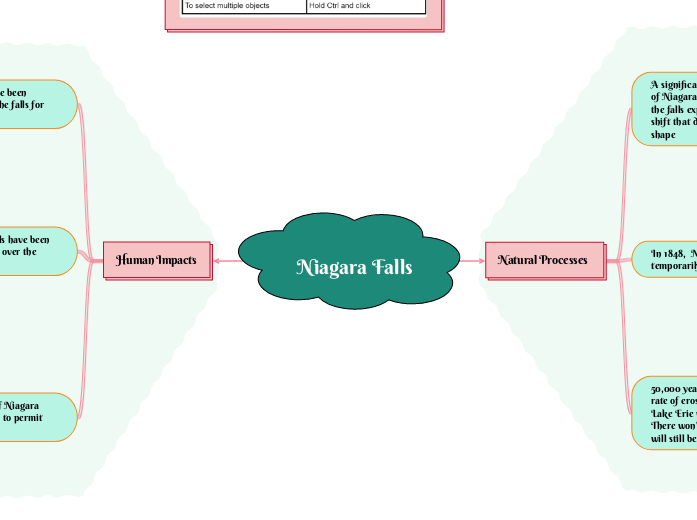Niagara Falls
Natural Processes
A significant natural event in the history of Niagara Falls occurred in 1950, when the falls experienced a major erosion shift that dramatically altered their shape
This event already happened, so we can't do anything about it now
Some people redirected the water into the American Falls, stopping them temporarily but benefiting the Canadian side
Again, this event already happened.
In 1848, Niagara Falls stopped flowing temporarily due to an ice jam
This was totally natural, and the ice melted on its own
No one - as this was a past event
Again, this was a past event, so we can't do anything now
50,000 years from now, at the present rate of erosion, the remaining 20 miles to Lake Erie will have been undermined. There won’t be a falls anymore but there will still be a river at work.
There's nothing we can do - no matter how long we try to prolong it, it's bound to happen either way
No one
There's nothing we can do to prevent this - maybe a solution will come in later years
Human Impacts
Visitors of Niagara Falls have been dumping their garbage into the falls for years
Stop throwing garbage into the falls
All the visitors can try to not throw anything
We can stop now!
billions of gallons of chemicals have been poured directly into the river over the years
Try to limit the chemicals that enter the river
places near the falls that use a lot of chemicals could gradually be moved away from the falls
Now would be a great time to start helping!
in 1969, the American side of Niagara Falls was stopped by humans to permit geographical studies
After studies were commenced, the Falls was run again
This could've been bad for Ontario, as Niagara Falls electrically powers most of the province
This event already happened, so we can't do anything about it now
Instructions
Mindomo How To
Everyone will make their own mindomo to learn the program, but you can work with a partner
If you make a mistake, hit undo (ctrl Z).
To select a topic, click on it. It will outline in blue.
To add a sub-topic, hit tab on keyboard.
Once selected, click the arrow in the top right to select text, image, emoji, etc.
